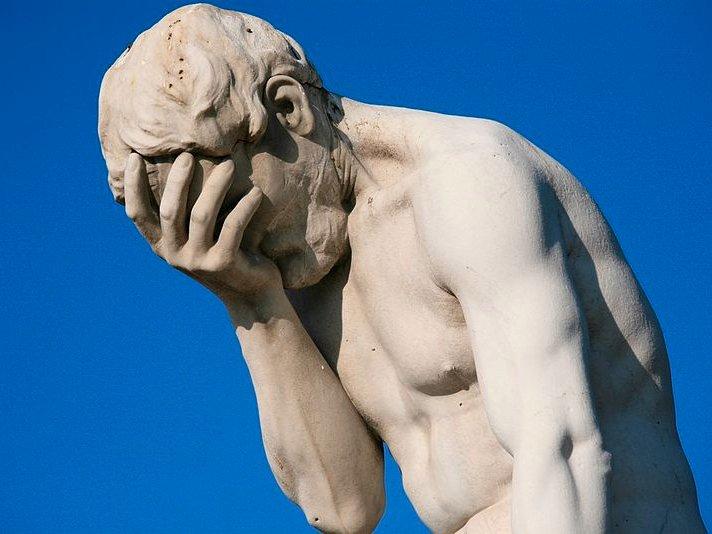A Princeton psychology professor told me a truth about human behavior that's both fascinating and sad

There are tons of cognitive biases that affect our daily decision-making.
There's the halo effect, which explains why we think physically attractive people are generally wonderful. And there's the endowment effect, which explains why we value something we're selling more highly than the person who's buying it from us.
But if you believe, as I did but a few weeks ago, that the purpose of studying these psychological phenomena is to build up your immunity to them, well, you're wrong. In fact, you can know everything there is to know about human decision-making and still fall prey to those biases.
I recently spoke with Eldar Shafir, a professor of psychology at Princeton University, after sitting in on a course he taught, called "The Psychology of Judgment and Decision-Making." The lecture that day focused on prospect theory, which describes how people make decisions under risk, and among the concepts Shafir discussed was the endowment effect, described above.
When we met after class, I asked Shafir if most people are aware when they're exhibiting symptoms of the endowment effect. He answered no — but as is typical of a behavioral scientist, went on to give a more nuanced answer that struck me as a powerful insight into the limits of human cognition.
"The enlightened realise that we're fallible, that we have biases, that we make mistakes," he said. "Which ones are the mistakes? What are the biases? People don't really know."
In other words, you can acknowledge on an intellectual level that you're susceptible to cognitive biases without necessarily being aware of which biases are affecting you at the moment, or in general.
Shafir went on:
"I can teach about the endowment effect, and yet, when I have something, I don't want to give it up. Am I resisting more than I should or not? Even when I know about the endowment effect, how do I gauge if my reaction is correct or not?"
That is to say, humans are not machines. Just because you're aware that you might be overvaluing the car you're trying to sell doesn't mean you know exactly how much you're overvaluing it, or what the price "should" be.
That said, knowing you're biased, there are some steps you can take to make better decisions. In a follow-up email, Shafir gave an example of police departments' policy of having lineups conducted by officers who don't know which of the men is the suspect. That's because, when the officer knows who the suspect is, the eyewitness is more likely to choose that person — even though the officer is well-intentioned, Shafir said.
When making big decisions in your personal life, Shafir said you can do some exercises to test how robust your preference really is. For example, you can ask yourself: Would I do the same thing had the decision been offered to me in the summer rather than the winter? Again though, this exercise is hardly a panacea.
I asked Shafir if he found this — the fact that no amount of knowledge can counteract our susceptibility to cognitive biases — frustrating.
"Sometimes it's frustrating," he acknowledged. "Sometimes it's amusing. Just having insight into our fallibilities — we're funny. And sometimes it makes life more interesting."
He added: "It sometimes makes you more modest because you realise that most of your decisions, most of your preferences are in some sense accidental. They could easily have been otherwise."
Read more:
• This chart is easy to interpret: It says we're screwed
• How Uber became the world's most valuable startup
• These 4 things could trigger the next crisis in Europe
Read the original article on Business Insider UK. © 2016. Follow Business Insider UK on Twitter.
Join our commenting forum
Join thought-provoking conversations, follow other Independent readers and see their replies
Comments
Bookmark popover
Removed from bookmarks